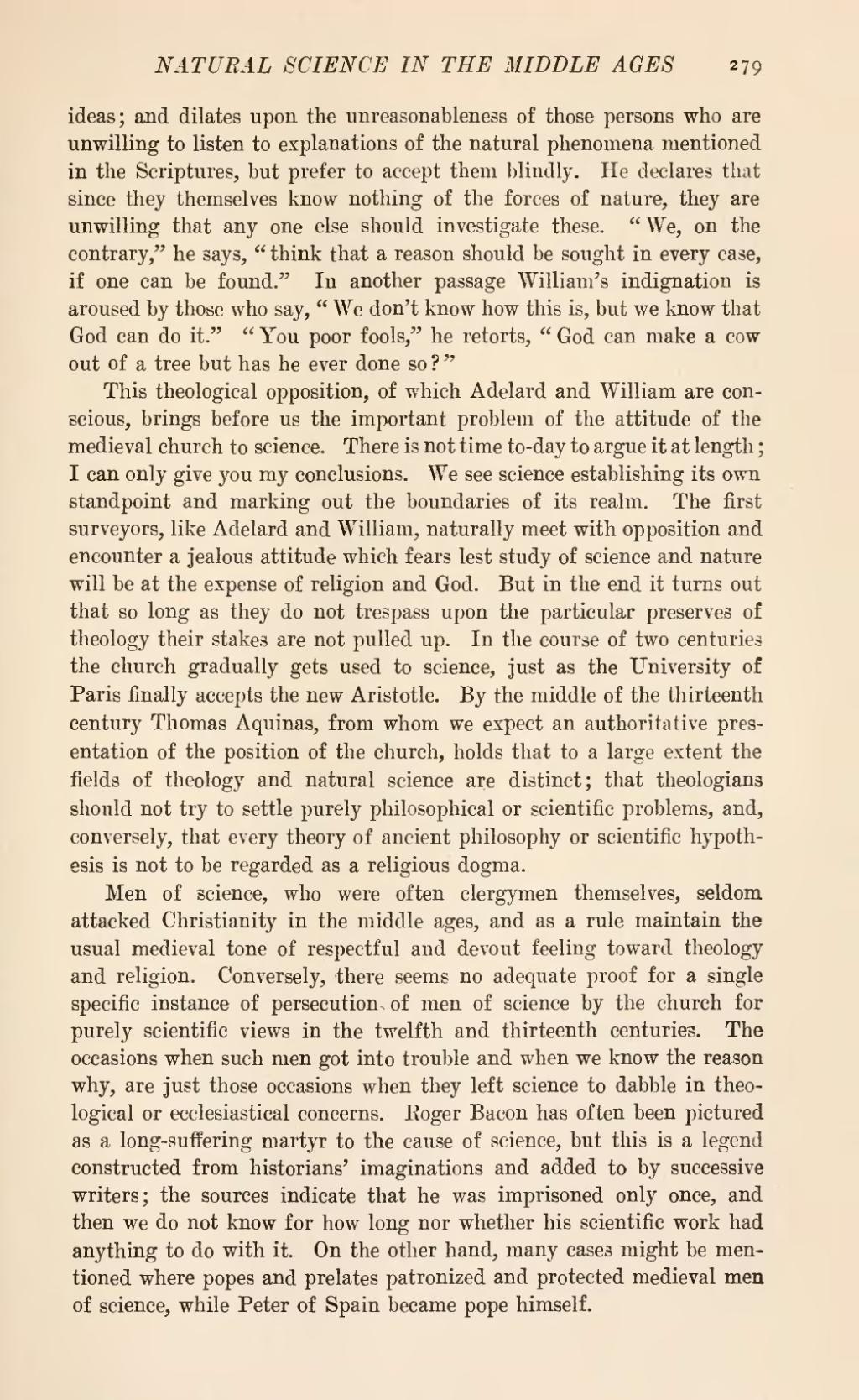ideas; and dilates upon the unreasonableness of those persons who are unwilling to listen to explanations of the natural phenomena mentioned in the Scriptures, but prefer to accept them blindly. He declares that since they themselves know nothing of the forces of nature, they are unwilling that any one else should investigate these. "We, on the contrary," he says, "think that a reason should be sought in every case, if one can be found." In another passage William's indignation is aroused by those who say, "We don't know how this is, but we know that God can do it." "You poor fools," he retorts, "God can make a cow out of a tree but has he ever done so?"
This theological opposition, of which Adelard and William are conscious, brings before us the important problem of the attitude of the medieval church to science. There is not time to-day to argue it at length; I can only give you my conclusions. We see science establishing its own standpoint and marking out the boundaries of its realm. The first surveyors, like Adelard and William, naturally meet with opposition and encounter a jealous attitude which fears lest study of science and nature will be at the expense of religion and God. But in the end it turns out that so long as they do not trespass upon the particular preserves of theology their stakes are not pulled up. In the course of two centuries the church gradually gets used to science, just as the University of Paris finally accepts the new Aristotle. By the middle of the thirteenth century Thomas Aquinas, from whom we expect an authoritative presentation of the position of the church, holds that to a large extent the fields of theology and natural science are distinct; that theologians should not try to settle purely philosophical or scientific problems, and, conversely, that every theory of ancient philosophy or scientific hypothesis is not to be regarded as a religious dogma.
Men of science, who were often clergymen themselves, seldom attacked Christianity in the middle ages, and as a rule maintain the usual medieval tone of respectful and devout feeling toward theology and religion. Conversely, there seems no adequate proof for a single specific instance of persecution of men of science by the church for purely scientific views in the twelfth and thirteenth centuries. The occasions when such men got into trouble and when we know the reason why, are just those occasions when they left science to dabble in theological or ecclesiastical concerns. Roger Bacon has often been pictured as a long-suffering martyr to the cause of science, but this is a legend constructed from historians' imaginations and added to by successive writers; the sources indicate that he was imprisoned only once, and then we do not know for how long nor whether his scientific work had anything to do with it. On the other hand, many cases might be mentioned where popes and prelates patronized and protected medieval men of science, while Peter of Spain became pope himself.
